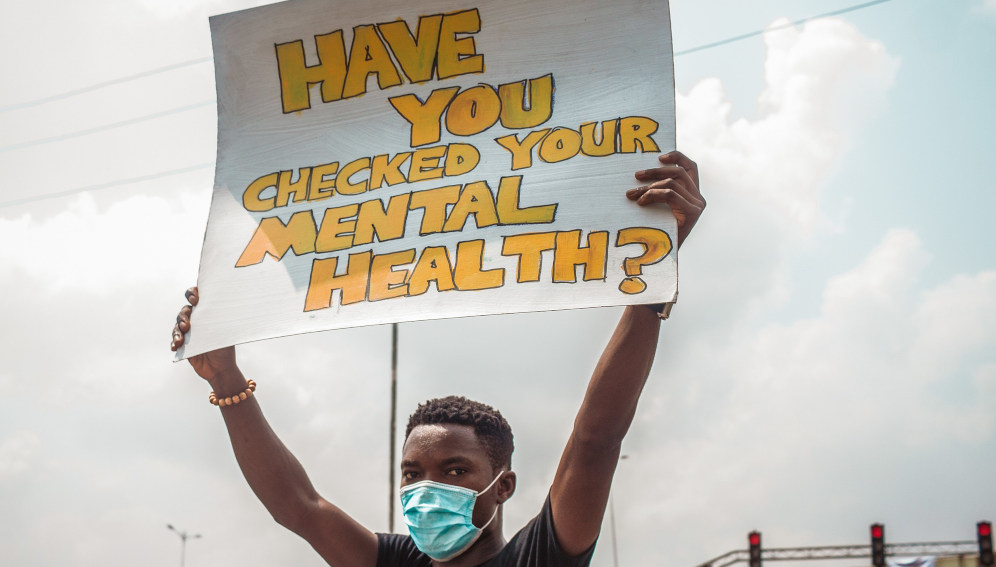06/12/23
Data crucial for Africa’s mental health response

Send to a friend
The details you provide on this page will not be used to send unsolicited email, and will not be sold to a 3rd party. See privacy policy.
[LUSAKA] A dearth of basic data on mental health conditions, as well as non-communicable diseases such as cancer and heart disease, is preventing people in Africa from accessing the care they need, global health specialists warn.
Mortality rates from these threats are on the rise, but the scarcity of population-based data is blocking investment in services, health officials said at the third International Conference on Public Health in Africa, in Lusaka, Zambia.
Mohammed Abdelaziz, head of disease control and prevention at the Africa Centres for Disease Control and Prevention (Africa CDC), told SciDev.Net: “When it comes to mental health, we still lack the basic data, because in many African countries they were never collected in the first place.
“When it comes to mental health, we still lack the basic data, because in many African countries they were never collected in the first place.”
Mohammed Abdelaziz, head of disease control and prevention, Africa Centres for Disease Control and Prevention
“Without data that can clearly show the burden of mental illnesses, it is not possible to convince member states to commit to investment in mental healthcare, or to request for funds from partners.”
New guidelines
Africa CDC unveiled new guidance for reinforcing the surveillance system related to non-communicable diseases, injuries and mental health (NCDI/MH) at a panel discussion at the conference last week (29 November).
Hassen Ghannem, member of the Africa CDC advisory board on NCDI/MH, told SciDev.Net: “The document is a tool that will serve to guide member states on how to collect reliable data on the magnitude of the problem, the risk factors and its social determinants.
“Without data, we do not have a basic understanding of the needs of the population, that will enable the implementation an effective strategy.”
He said that the COVID-19 pandemic had made people keenly aware of the substantial impact of mental illness in Africa.
This is reflected in the Africa CDC’s strategy for Non-Communicable Diseases, Injuries Prevention, Control, and Mental Health Promotion (2022-26), which has a particular focus on mental health, Ghannem added.
The World Health Organization (WHO) estimates that, before the pandemic, more than 116 million people in the African region were living with mental health conditions.
And multiple studies suggest that the problem was significantly exacerbated during the pandemic.
Although numerous studies attempt to estimate the prevalence of mental health disorders in the region, these cannot capture the whole picture and should not serve as a substitute for national surveillance systems, says Julian Eaton, assistant professor of Global Mental Health at the London School of Hygiene and Tropical Medicine.
Without data on the number of people in need, it is very hard to organise services, allocate resources and design effective strategies, he tells SciDev.Net.
For example, says Eaton, data on the number of children experiencing seizures and the percentage who develop lifelong disabilities from sudden falls during such seizures, as well as details on the impact of investing in medication, could persuade policymakers to take action.
‘Transforming data’
“As we gather data, it’s crucial to intensify our focus on training and preparing mental health specialists and engaged civil society stakeholders in effectively transforming this data into understandable information for policymakers, ultimately driving actionable outcomes,” said Abdelaziz.
“This is one of the main aims of the Youth Mental Health leadership fellowship that we are launching next year,” he added.
Aviwe Funani, senior policy and advocacy officer at the United for Global Mental Health network, said reliable mental health data will facilitate appropriate decision-making on mental health issues.
Funani told SciDev.Net: “Reliable data on mental health in Africa would be very valuable for us as an organisation to be able to increase the credibility of our advocacy processes when we speak to stakeholders. It also helps us increase the production of documents and recommendations that can help policymakers make decisions around mental health.”
The guidance will be followed by a series of technical documents that will detail the core indicators and the data that should be collected, Hassan explained, adding that this would enable a coordinated response across the continent.
This piece was produced by SciDev.Net’s Sub-Saharan Africa English desk.













